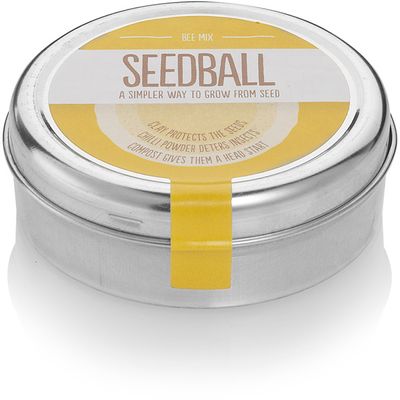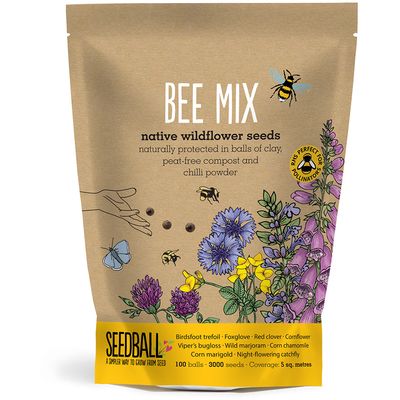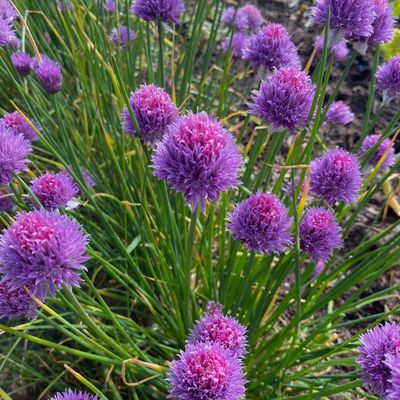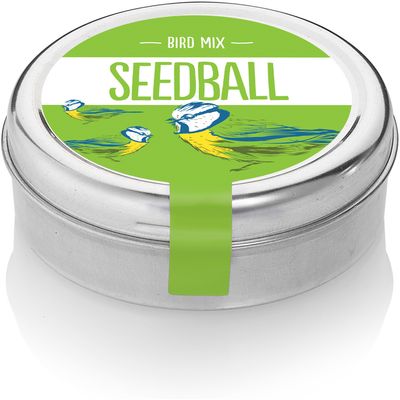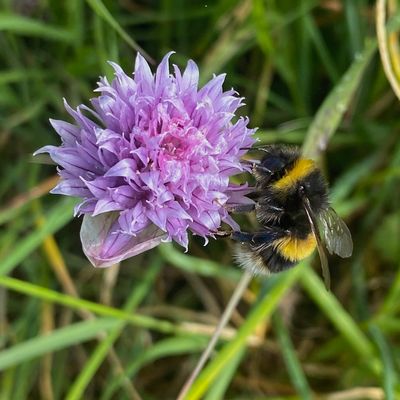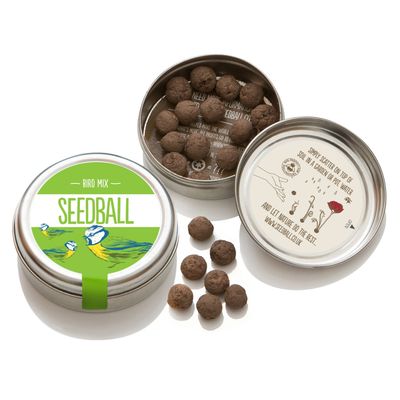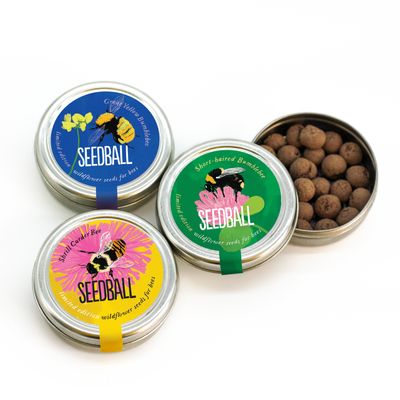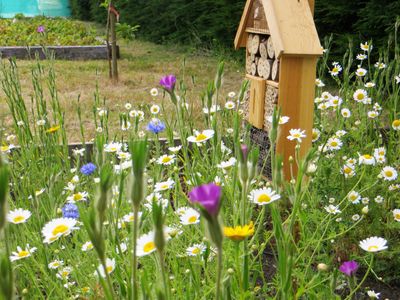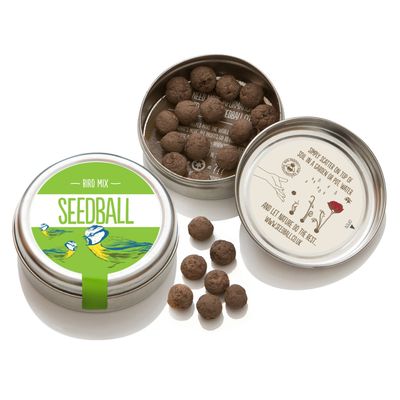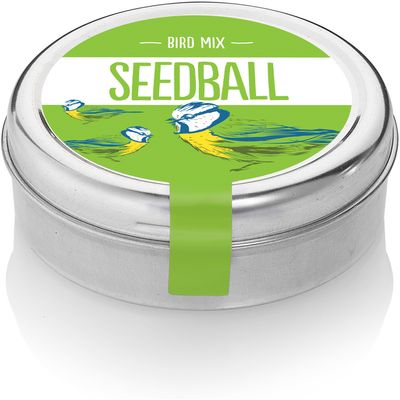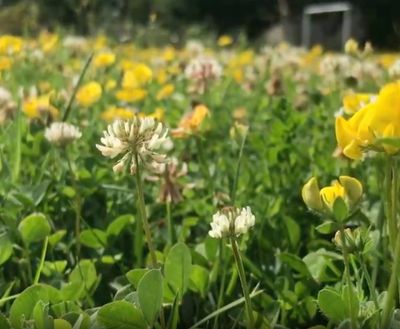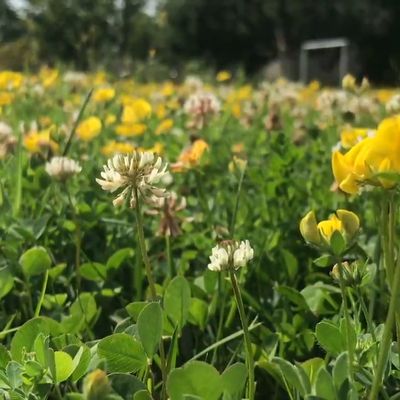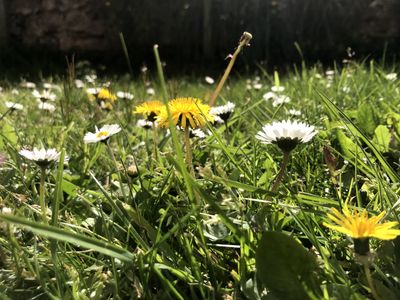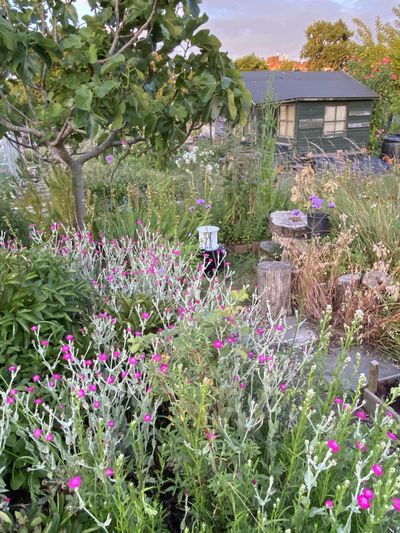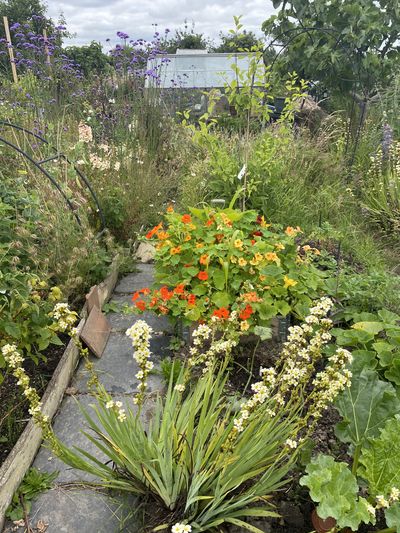5 Simple Ways to Boost Biodiversity This Earth Day (And Every Day!)
Published:
Read Time: 3 mins
Earth Day is the perfect time to take small steps towards sustainability in the garden. A few easy changes can help protect biodiversity, conserve water and create a thriving and lively outdoor space. The original seed ball company, Seedball, has shared its top five ways to make the garden extra eco-friendly and welcoming to wildlife this Earth Day – and beyond!
1, Look Your Soil
Healthy soil is the foundation of a thriving garden. By mulching once a year with a 5-10cm layer of organic matter, such as homemade peat-free compost, helps retain moisture, protect nutrients, and improve soil structure. For clay soils, autumn is best for mulching, while sandy soils benefit from a spring spread. Over time, mulching supports beneficial microorganisms and earthworms, leading to healthier plants and a more vibrant ecosystem. Other excellent mulch options include mushroom compost, wood chippings, and leaf mould.
Top tip! Wildflower patches love poor soil, so skip the mulch in these areas! Instead, remove cuttings and plant material after seeds have dropped to prevent enriching the soil.
2. Collect Rainwater
Water is precious, and collecting rainwater is an easy way to reduce mains use, cut costs and keep your plants happy! Adding a water butt is a great solution, and you don’t need to buy one brand new - consider repurposing an old dustbin, water tank, or beer barrel. Position it under a downpipe or an area with significant rain runoff and cover it to keep the water clean. With a little DIY effort, you can even add a tap for easy access. Use collected rainwater to water the garden during dry spells and top up ponds.
3.Rethink Hard Surfaces
Too much paving can lead to water runoff and flooding. Instead, look for ways to make your landscaping more permeable. Could you swap solid paving for gravel, or add planting between slabs? Even a driveway can go greener – two paved tracks for car wheels with ground cover in between looks great and lets rain soak away naturally.
4. Right Plant, Right Place
Choose plants that will be happy in the position you place them. For example, a delicate Acer tree needs shelter from strong winds, while sun-loving lavender will struggle in the shade. Selecting the right plants for the right conditions saves time, effort, and resources in the long run. Additionally, understanding soil moisture levels can help - some plants prefer well-drained conditions, while others, like snakehead fritillary, thrive in damp ground!
5. Plant for pollinators
One of the simplest ways to encourage wildlife is to plant a variety of flowers – especially wildflowers! Wildflowers are naturally adapted to local conditions and provide essential nectar and pollen for pollinators like bees and beetles. Many insects, including moths and butterflies, rely on very specific plants for their larvae. Supporting these species, in turn, benefits birds and hedgehogs, which feed on insects. Consider leaving a nettle patch or growing a blackberry bush which can create an essential nursery for caterpillars, helping maintain a balanced ecosystem.
Every small action in the garden adds up to something bigger. This Earth Day, why not try one or two changes that support nature right on your doorstep?
To shop Seedball’s collection of wildflower products or for more expert insight and advice, visit the website at www.seedball.co.uk
Ends
Editors notes
Seedball was founded by two conservation scientists wanting to boost biodiversity and help wildlife.
Seedball Ltd is an innovative organisation on a mission to help increase the abundance of British wildflowers and the wildlife that depends upon them.
Owned by Project Maya – a non-profit enterprise - Seedball manufactures wildflower seed balls using a unique innovation of wildflower seeds mixed with clay, peat-free compost and chilli powder to naturally protect seeds from predators. Its products are sold in over 500 stores in the UK, including Kew Gardens, The Woodland Trust and Blue Diamond Garden Centres, as well as online retailers such as Crocus and Marie Curie. Each year, Seedball also donates products to hundreds of schools and community groups to help support their nature projects.
